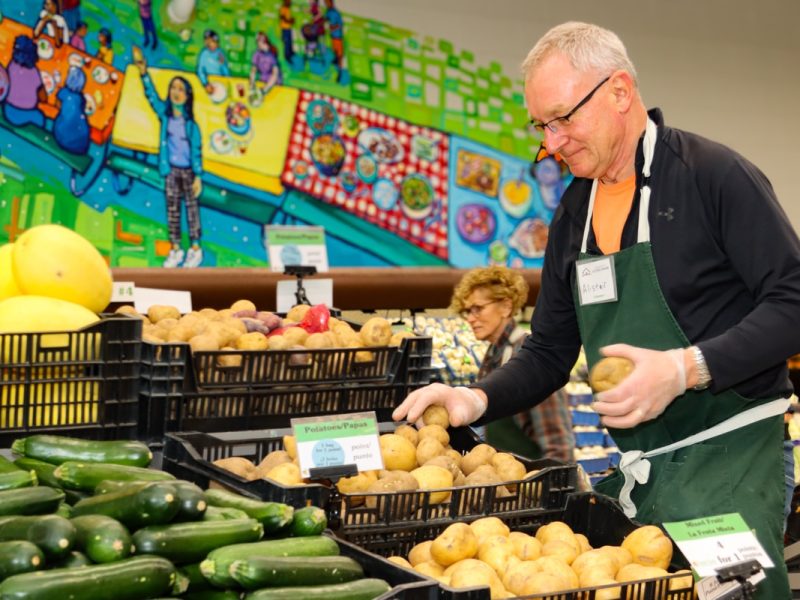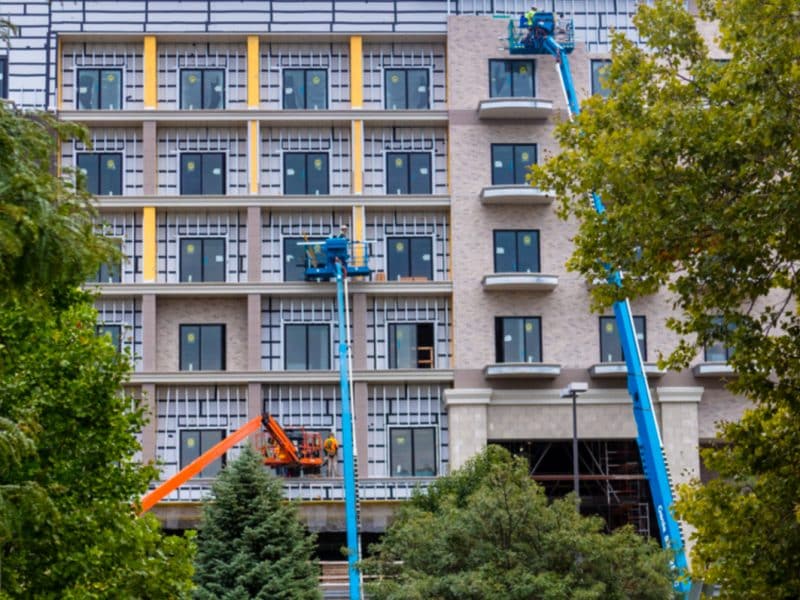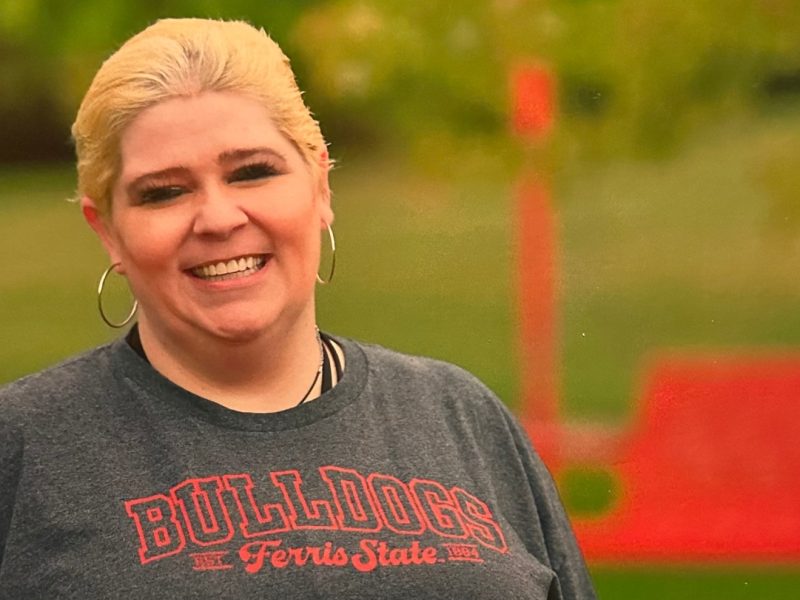‘I finally felt free’: How a teen found his potential after years in incarceration
At 19, Bilal Al-Raed has lived a life that defies the odds and inspires hope in others. The winner of the Delta Project’s At Potential award talks about his journey.
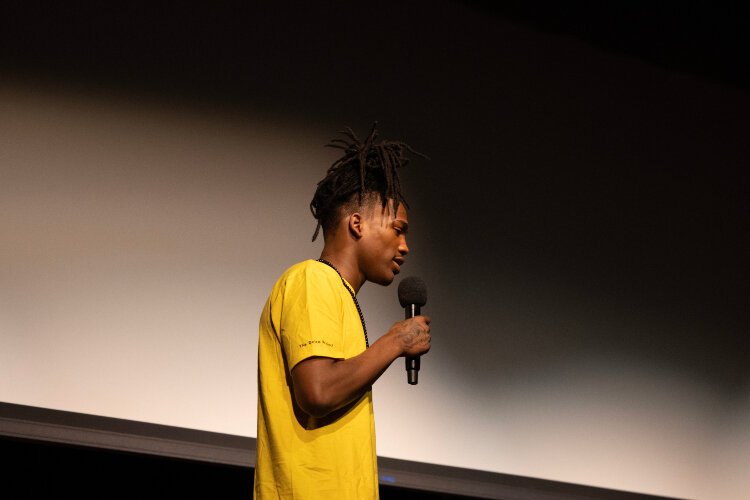
At 19, Bilal Al-Raed has lived a life that defies the odds and inspires hope in others.
“Bilal’s a testament to the power of resilience and the capacity for transformation,” says Cole Williams, CEO and founder of the Delta Project. “His story is one of triumph over adversity. Having spent the majority of his teenage years incarcerated, Bilal intimately understands the challenges faced by youth in similar circumstances.”
The Delta Project is a Grand Rapids nonprofit that helps youths in the juvenile justice system.
Al-Raed was honored with the At Potential Award at the Delta Project’s inaugural Gratitude Concert on May 15, which spotlighted the unsung heroes who are helping at-risk youth reach their potential.
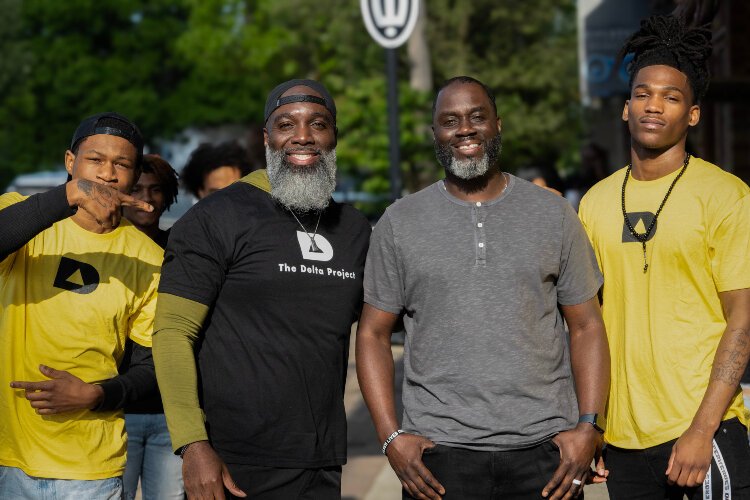
Representatives from the Delta Project, including CEO Cole Williams (second from right) and At-Potential Award winner Bilal Al-Raed (far right).
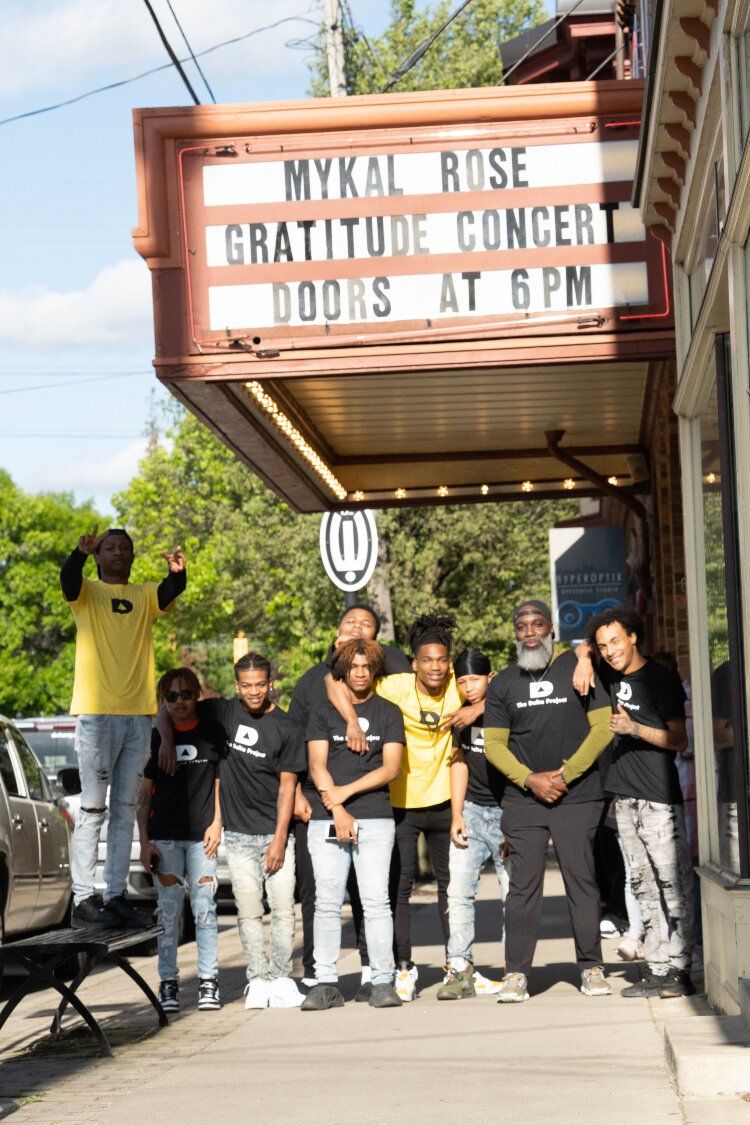
The Delta Project’s inaugural Gratitude Concert spotlighted the unsung heroes who are helping at-risk youth reach their potential.
The At Potential Award was created to honor a youth who is “a testament to the power of resilience and the capacity for transformation.”
Al-Raed credits the Delta Project for showing him his potential.
“My experience with the Delta project has been nothing less than empowering and impactful. In my adolescent years I constantly searched for a family and a sense of placement,” says Al-Raed. “I eventually found the love of Islam. But apart from that, I found family with the Delta project, from the mentees to mentors and peers.”
In the last year, Al-Raed has been an intern with the Delta project while studying at Davenport University.
“I’ve been doing mentoring and trying to do other things for the community,” says Al-Raed.
Surprised by recognition
The last thing he expected was an award from the Delta Project.
“I was ecstatic to go to the Gratitude Concert, because I really wanted to see the people who give this community hope being appreciated, and I felt important just being a piece of this concert,” says Al-Raed.
“It was euphoric, and it replays in my head rent-free. I was surprised and emotional. I hid it well, I think, but I wanted to drop a tear. I never had a trophy. This was my first time being awarded something and it being meaningful. I held that trophy for 53 minutes when I got home. I finally felt free.”
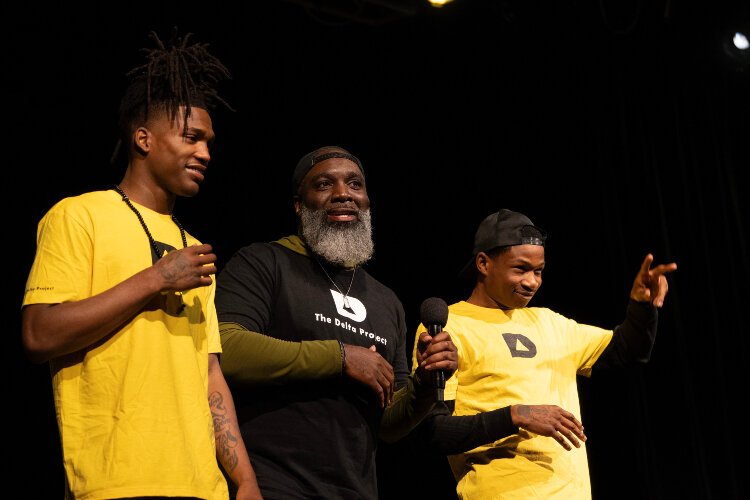
The Delta Project’s At Potential Award was created to honor a youth who is “a testament to the power of resilience and the capacity for transformation.”
Despite encountering trauma, abuse, and loss, Al-Raed refused to let his past define him. Instead, he emerged from the darkness with a renewed sense of purpose and determination.
Those painful experiences have given Al-Raed an insightful voice at a young age. He shares his perspective on the Delta Project’s new podcast series, joining Williams and Joel Van Kuiken in conversations with people examining the juvenile justice system.
‘Beacon of hope’
As a poet, speaker, mentor, advocate, and college student, Al-Raed’s journey is marked by perseverance, passion, and a commitment to creating positive change.
“Today, Bilal is a beacon of hope for youth impacted by the foster care and juvenile justice systems,” Williams says. “As a mentor and advocate, he works tirelessly to empower others to find their voices, embrace their strengths, and rewrite their own narratives.”
He adds that Al-Raed’s raw and honest storytelling captivates audiences, challenging societal norms and shedding light on systemic injustices.
Al-Raed has spoken at such conferences as the Michigan Association of School Social Workers and the MDHHS Children’s Services Administration Anti-Racism Transformation Team Conference.
He’s on the Michigan Committee on Juvenile Justice through the Michigan Department of Health and Human Services.
“I try to go in and give them hope. A lot of the support I got now came from me being incarcerated,” says Al-Raed.
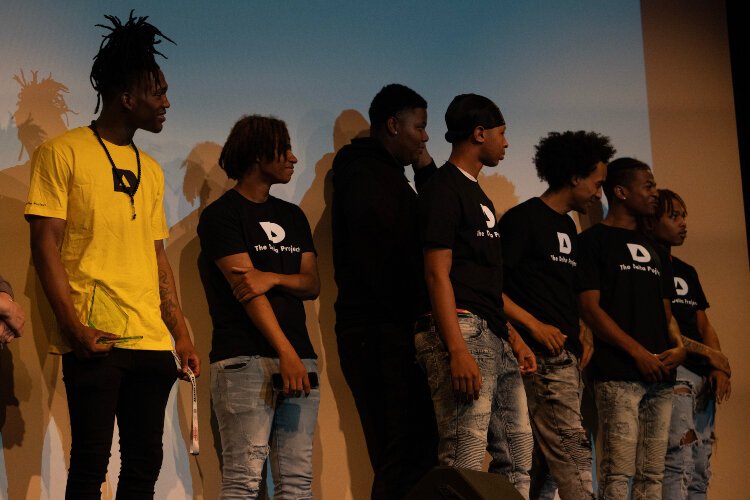
The Delta Project is a Grand Rapids nonprofit that helps youths in the juvenile justice system.
‘No obstacle is insurmountable’
Now, as a college student, Al-Raed is pursuing a career as a poet and speaker, using his platform to advocate for systemic change and inspire others to believe in the power of their own resilience.
“With unwavering determination and a heart full of compassion, he continues to uplift and empower those around him, proving that no obstacle is insurmountable and that every voice deserves to be heard,” Williams says.
Al-Raed entered the juvenile system when he was 13 after stealing a car and didn’t exit it until 18, when he was transferred to county jail.
“Honestly, the first time I went there, I felt like I was cool,” says Al-Raed.
It also brought stability, providing a routine, the same bed and three meals and snacks.
“Before, I used to steal clothes, steal food, stuff like that,” Al-Raed says about living in a survival mode.
“When I was 16, I found myself in a little bit more trouble, more serious than usual,” he says. “I was settling with the fact that I may not come home, so I had a little more clarity. I had a class with Cole every Friday, and he would say, ‘If you don’t read, you should read. If you don’t write, you should write.’ He said that after every class for years, since I was 13, but I finally listened.
“In our class, he used to say if you want to keep Black folks down, hide it in the book. So I think breaking that stereotype that Black folks don’t read, Black folks don’t articulate and things like that — we should find a way to read. We should find a way to write and have our voices.”
‘I could be something different’
Sometime after that lesson, Al-Raed was in a space that served as the library, surrounded by books.
“I saw a book called ‘The Poetry of Our World.’ I ended up skimming through it, and I saw a poem that I really liked,” says Al-Raed. “I have tried to imitate it ever since then. I just started pulling my feelings on paper. I’ve probably written over 70 poems so far. For me, it’s a release, just like art.”
After writing that poem, the first person he showed it to was Williams.
“I was excited to show him, honestly,” says Al-Raed. “The way he reacted made me want to keep going. He was very proud of my work. He told me that it was amazing, and that made me proud of it.”
Al-Raed later was transferred to jail. On his 19th birthday, he met with Williams, whom he hadn’t seen for years.
“He invited me one day on my birthday, and we just connected,” says Al-Raed. “It was just a serious conversation. That was the first time I’ve seen him since COVID, so that’s what was special for me.
“We did a podcast. And from there, I actually had hope that I could be something different.” says Al-Raed.
“Cole gave me the image that I needed to change my perspective on things. I just had to make a change. I was on probation, so Cole kind of set me up with the tools to do it on my own.”

